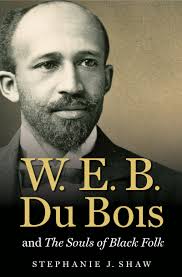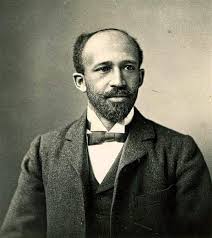The Souls of Black Folk Page #9
The Souls of Black Folk is a 1903 work of American literature by W. E. B. Du Bois. It is a seminal work in the history of sociology and a cornerstone of African-American literature. The book contains several essays on race, some of which the magazine Atlantic Monthly had previously published.
Such an institution, from its wide powers, great responsibilities, large control of moneys, and generally conspicuous position, was naturally open to repeated and bitter attack. It sustained a searching Congressional investigation at the instance of Fernando Wood in 1870. Its archives and few remaining functions were with blunt discourtesy transferred from Howard’s control, in his absence, to the supervision of Secretary of War Belknap in 1872, on the Secretary’s recommendation. Finally, in consequence of grave intimations of wrong-doing made by the Secretary and his subordinates, General Howard was court-martialed in 1874. In both of these trials the Commissioner of the Freedmen’s Bureau was officially exonerated from any wilful misdoing, and his work commended. Nevertheless, many unpleasant things were brought to light,—the methods of transacting the business of the Bureau were faulty; several cases of defalcation were proved, and other frauds strongly suspected; there were some business transactions which savored of dangerous speculation, if not dishonesty; and around it all lay the smirch of the Freedmen’s Bank. Morally and practically, the Freedmen’s Bank was part of the Freedmen’s Bureau, although it had no legal connection with it. With the prestige of the government back of it, and a directing board of unusual respectability and national reputation, this banking institution had made a remarkable start in the development of that thrift among black folk which slavery had kept them from knowing. Then in one sad day came the crash,—all the hard-earned dollars of the freedmen disappeared; but that was the least of the loss,—all the faith in saving went too, and much of the faith in men; and that was a loss that a Nation which to-day sneers at Negro shiftlessness has never yet made good. Not even ten additional years of slavery could have done so much to throttle the thrift of the freedmen as the mismanagement and bankruptcy of the series of savings banks chartered by the Nation for their especial aid. Where all the blame should rest, it is hard to say; whether the Bureau and the Bank died chiefly by reason of the blows of its selfish friends or the dark machinations of its foes, perhaps even time will never reveal, for here lies unwritten history. Of the foes without the Bureau, the bitterest were those who attacked not so much its conduct or policy under the law as the necessity for any such institution at all. Such attacks came primarily from the Border States and the South; and they were summed up by Senator Davis, of Kentucky, when he moved to entitle the act of 1866 a bill “to promote strife and conflict between the white and black races… by a grant of unconstitutional power.” The argument gathered tremendous strength South and North; but its very strength was its weakness. For, argued the plain common-sense of the nation, if it is unconstitutional, unpractical, and futile for the nation to stand guardian over its helpless wards, then there is left but one alternative,—to make those wards their own guardians by arming them with the ballot. Moreover, the path of the practical politician pointed the same way; for, argued this opportunist, if we cannot peacefully reconstruct the South with white votes, we certainly can with black votes. So justice and force joined hands. The alternative thus offered the nation was not between full and restricted Negro suffrage; else every sensible man, black and white, would easily have chosen the latter. It was rather a choice between suffrage and slavery, after endless blood and gold had flowed to sweep human bondage away. Not a single Southern legislature stood ready to admit a Negro, under any conditions, to the polls; not a single Southern legislature believed free Negro labor was possible without a system of restrictions that took all its freedom away; there was scarcely a white man in the South who did not honestly regard Emancipation as a crime, and its practical nullification as a duty. In such a situation, the granting of the ballot to the black man was a necessity, the very least a guilty nation could grant a wronged race, and the only method of compelling the South to accept the results of the war. Thus Negro suffrage ended a civil war by beginning a race feud. And some felt gratitude toward the race thus sacrificed in its swaddling clothes on the altar of national integrity; and some felt and feel only indifference and contempt. Had political exigencies been less pressing, the opposition to government guardianship of Negroes less bitter, and the attachment to the slave system less strong, the social seer can well imagine a far better policy,—a permanent Freedmen’s Bureau, with a national system of Negro schools; a carefully supervised employment and labor office; a system of impartial protection before the regular courts; and such institutions for social betterment as savings-banks, land and building associations, and social settlements. All this vast expenditure of money and brains might have formed a great school of prospective citizenship, and solved in a way we have not yet solved the most perplexing and persistent of the Negro problems. That such an institution was unthinkable in 1870 was due in part to certain acts of the Freedmen’s Bureau itself. It came to regard its work as merely temporary, and Negro suffrage as a final answer to all present perplexities. The political ambition of many of its agents and protégés led it far afield into questionable activities, until the South, nursing its own deep prejudices, came easily to ignore all the good deeds of the Bureau and hate its very name with perfect hatred. So the Freedmen’s Bureau died, and its child was the Fifteenth Amendment. The passing of a great human institution before its work is done, like the untimely passing of a single soul, but leaves a legacy of striving for other men. The legacy of the Freedmen’s Bureau is the heavy heritage of this generation. To-day, when new and vaster problems are destined to strain every fibre of the national mind and soul, would it not be well to count this legacy honestly and carefully? For this much all men know: despite compromise, war, and struggle, the Negro is not free. In the backwoods of the Gulf States, for miles and miles, he may not leave the plantation of his birth; in well-nigh the whole rural South the black farmers are peons, bound by law and custom to an economic slavery, from which the only escape is death or the penitentiary. In the most cultured sections and cities of the South the Negroes are a segregated servile caste, with restricted rights and privileges. Before the courts, both in law and custom, they stand on a different and peculiar basis. Taxation without representation is the rule of their political life. And the result of all this is, and in nature must have been, lawlessness and crime. That is the large legacy of the Freedmen’s Bureau, the work it did not do because it could not.
Translation
Translate and read this book in other languages:
Select another language:
- - Select -
- 简体中文 (Chinese - Simplified)
- 繁體中文 (Chinese - Traditional)
- Español (Spanish)
- Esperanto (Esperanto)
- 日本語 (Japanese)
- Português (Portuguese)
- Deutsch (German)
- العربية (Arabic)
- Français (French)
- Русский (Russian)
- ಕನ್ನಡ (Kannada)
- 한국어 (Korean)
- עברית (Hebrew)
- Gaeilge (Irish)
- Українська (Ukrainian)
- اردو (Urdu)
- Magyar (Hungarian)
- मानक हिन्दी (Hindi)
- Indonesia (Indonesian)
- Italiano (Italian)
- தமிழ் (Tamil)
- Türkçe (Turkish)
- తెలుగు (Telugu)
- ภาษาไทย (Thai)
- Tiếng Việt (Vietnamese)
- Čeština (Czech)
- Polski (Polish)
- Bahasa Indonesia (Indonesian)
- Românește (Romanian)
- Nederlands (Dutch)
- Ελληνικά (Greek)
- Latinum (Latin)
- Svenska (Swedish)
- Dansk (Danish)
- Suomi (Finnish)
- فارسی (Persian)
- ייִדיש (Yiddish)
- հայերեն (Armenian)
- Norsk (Norwegian)
- English (English)
Citation
Use the citation below to add this book to your bibliography:
Style:MLAChicagoAPA
"The Souls of Black Folk Books." Literature.com. STANDS4 LLC, 2025. Web. 23 Feb. 2025. <https://www.literature.com/book/the_souls_of_black_folk_310>.








Discuss this The Souls of Black Folk book with the community:
Report Comment
We're doing our best to make sure our content is useful, accurate and safe.
If by any chance you spot an inappropriate comment while navigating through our website please use this form to let us know, and we'll take care of it shortly.
Attachment
You need to be logged in to favorite.
Log In